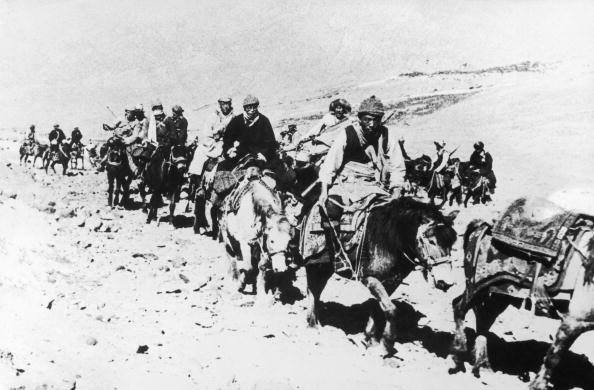Chinese Foreign Ministry said that the Dalai Lama fled from Tibet to India after a “failed armed rebellion” in 1959. The statement was to contradict the Tibetan leader’s comment that he had no choice but to take flight because of increased movement of the Chinese military.
"As it is known to all, the 14th Dalai Lama is an anti-China separatist who has long lived in exile following a failed armed rebellion by the reactionary group of high-ranking feudal serf-owners in Tibet in March 1959," the Chinese Foreign Ministry said as a response to the Dalai Lama’s comments.
"His remarks which serve his anti-China separatist purpose have no trace of facts at all," the Ministry continued.
Regarding the Dalai Lama’s stay in India, the Ministry said that the Chinese government is absolutely against any country giving support and facilitation for the anti-China separatist activities of his group.
During his visit to Assam yesterday, the Dalai Lama recalled the Tibetan rebellion.
"On March 10, 1959, there were huge demonstrations in Lhasa. Chinese military action also increased. I had no option but to escape. On March 17, I fled," the 81-year-old Tibetan spiritual leader said.
Lhasa is the capital of the Tibetan region.
The Dalai Lama views the compassionate welcome given to him upon his coming in Arunachal Pradesh 58 years ago as a "moment of freedom."
In Oct. 1950, Chinese troops entered Tibet, prevailing against the Tibetan army. A year later, the Chinese army gained control over the area. In 1959, the Dalai Lama escaped from Tibet and has lived in India as an exile since.
Last Friday, the Chinese government warned India that the Tibetan leader’s visit to Arunachal Pradesh will leave a "serious damage" to bilateral ties. This was China’s third warning to India over the past few weeks. The country claims Arunachal Pradesh to be a part of Tibet.
On April 4, the Dalai Lama is scheduled to visit Tawang for religious engagements.
China and the Dalai Lama have been in a word war ever since the “failed armed rebellion.” Beijing sees the Tibetan leader as a separatist, trying to make the country fall apart.



























